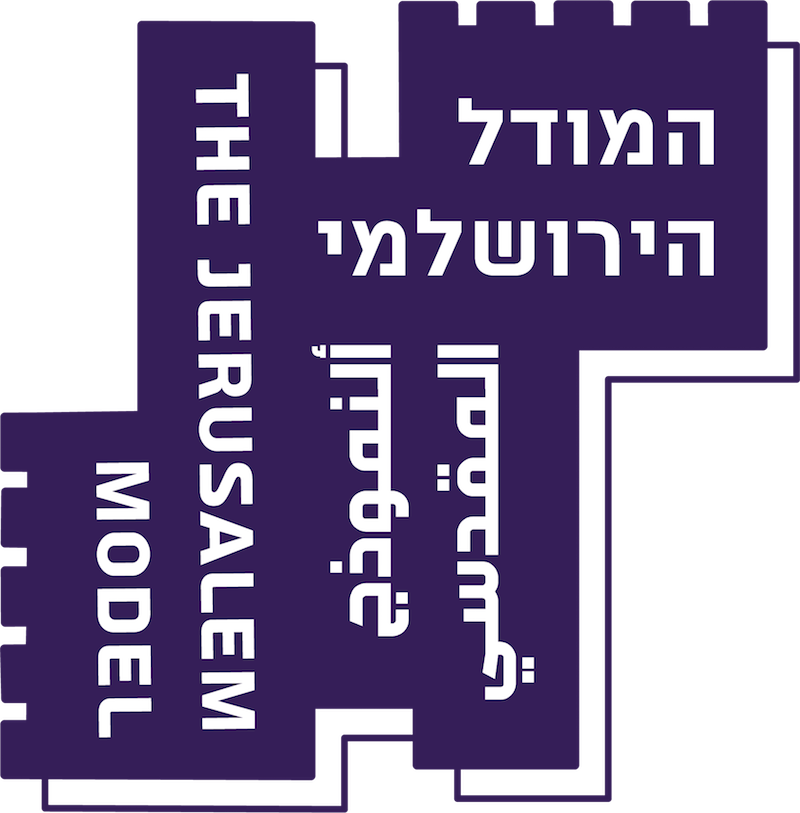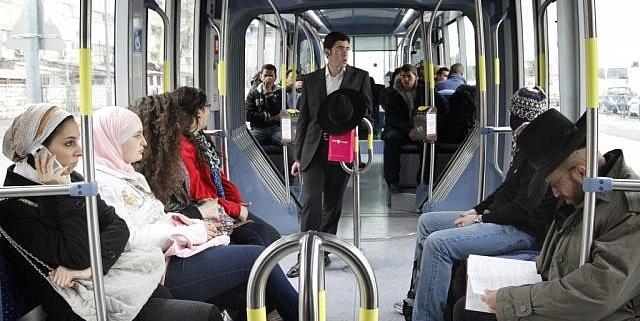The Jerusalem We Know
Reprinted from Times of Israel
If our multicultural holy city is to see peace, then sticking her with labels that don’t fit isn’t going to help.
As a group of young Palestinian and Israeli activists from Jerusalem, we, Riman Barakat, Racheli Ibenboim, and myself, Michal Shilor, have found it slightly gut-wrenching to see our beloved city receive so much international attention. Never in our lives have we seen so much written about this place by people who know so little about it.
We were born and raised here, learned here, loved here, and are now building families here. We’ve lived through wars, uprisings, and peace treaties that led to where we are today. Through it all, we’ve grown used to international journalists parachuting in and choosing to focus their lens on the extremists, the bloodshed, and the hatred, while they ignore the daily harmony and natural coexistence that takes little searching in order to see. We’ve grown accustomed, in turn, to the shock of foreigners when they finally visit our city and see that it has no resemblance to the war zone they see on TV or read about in the paper. Even the closest observers of this conflict are stunned to hear that in this city of 860,000, there have been a total of 27 violent fatalities this year. That accounts for political violence and apolitical homicides. Last year’s homicide figures for Columbus, Ohio, a city the same size, were four times that.
Never has this crack between portrayal and reality felt wider than it does now. Reading the headlines, one would imagine that tensions in the air here could suffocate a person, that there never could be peaceful interactions between the Israelis and Palestinians who live in this holy city. Following President Trump’s Jerusalem announcement, there were warnings of explosive consequences. An endless chorus of experts and world leaders predicted unprecedented bloodshed.
Yet despite those dire warnings, and calls for violence on one side and celebrations on the other, Jerusalemites have remained loyal to themselves. At Friday prayers following Trump’s declarations, journalists swarmed the Old City’s Damascus Gate — the scene of massive protests just months ago. Yet reporters outnumbered protesters, and the day ended with little evidence of the apocalypse so many seemed to expect. Jews, similarly, were not cheering in the streets, waving Israeli flags in the faces of Arabs.
The world seems to want violence in Jerusalem. It expects and awaits it. And Jerusalemites are saying: Not us, not now. We refuse to act out the script that’s been written for us. Despite pressure from national and international leaders, what we are actually seeing on the ground is daily life continuing as usual. People are dropping their kids off at school, going to work, shopping in the market. Perhaps that is because we Jerusalemites know a little secret: this city does not belong to one religion or nation. We, the Jerusalemites, belong to her.
The Jerusalemite identity goes beyond the national. Jews, Muslims, and Christians were born here and live here. All of us have a deep connection to Jerusalem. And while those unaware of this continue to fight over her like a prize to be won, we who breathe her air and walk her streets are actively preserving the very love and spirituality that has made Jerusalem so appealing to so many people for so many thousands of years. This is what those misleading representations of Jerusalem don’t show you: that the real Jerusalem, the everyday streets of Jerusalem, are filled with multicultural richness and interactions between people as eclectic as the spices that fill her markets. Walk a day in Jerusalem and you will see Palestinian Christians, Muslims, secular Jews, artists, members of the LGBTQ community, Ethiopian Jews, ultra-Orthodox Jews, African refugees, and the many other faces that color Jerusalem’s cultural quilt.
Yes, of course there are hateful people here. Where in the world aren’t there today? Yet if Jerusalem was so full of hatred, there would be more opportunity here than anywhere else for her diverse and supposedly opposing members of society to express that hatred. Six days a week, 18 hours a day, Jews and Arabs travel on the Jerusalem light rail together. Just once every few months, we hear of a violent or racist incident occurring on the light rail. That is of course one too many, but think about that: thousands of Arabs and Jews meet every day on the train and have the opportunity to create hate. And they don’t. They just don’t.
The extremist voices, which all of us hear much more about, are in reality marginal members of society. Far more people are standing up and offering a different answer. For example, when a teenage girl was murdered at the 2015 gay pride parade in Jerusalem, activists created a weekly dialogue circle that still occurs every Thursday night in Zion Square. When extremists torched an Arab-Jewish school in 2014, seeking to extinguish hope for coexistence, thousands of Israelis and Palestinians marched through the streets of Jerusalem in support of coexistence.
See, our city thrives despite the extremist one-percent, thanks to the 99%, who exemplify Jerusalem’s spirit of love and peace. That majority is rarely depicted, because complexity isn’t easy for an outsider to depict. Perhaps nuance isn’t as sexy as hatred and violence. Yet if Jerusalem is going to see true peace, with even less extremism, then sticking her with labels that don’t fit her isn’t going to help. In fact, it fits right into the hands of extremists on both sides.
For us, life in Jerusalem provides many more reasons to hope than to despair. Yes, it is a city of tensions and complexities. Yet we are conscious of the fact that we live in a city of international and historic import, and so, rather than letting those difficulties control us, we create our own reality. And that is the greatest lesson here. After all, Jerusalem is a microcosm of the conflict itself, the epicenter of the most difficult issues facing our people. Yet it is also where the solution lies. Because if we are able to create this reality in Jerusalem, despite all we are up against, it truly can be created anywhere.


